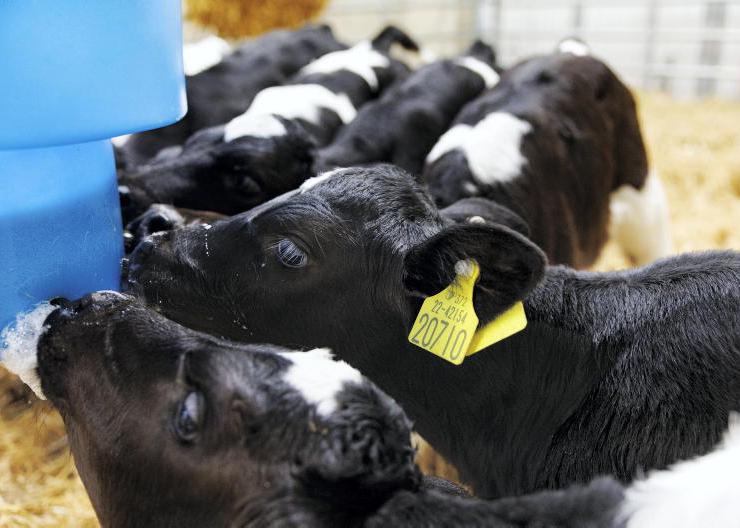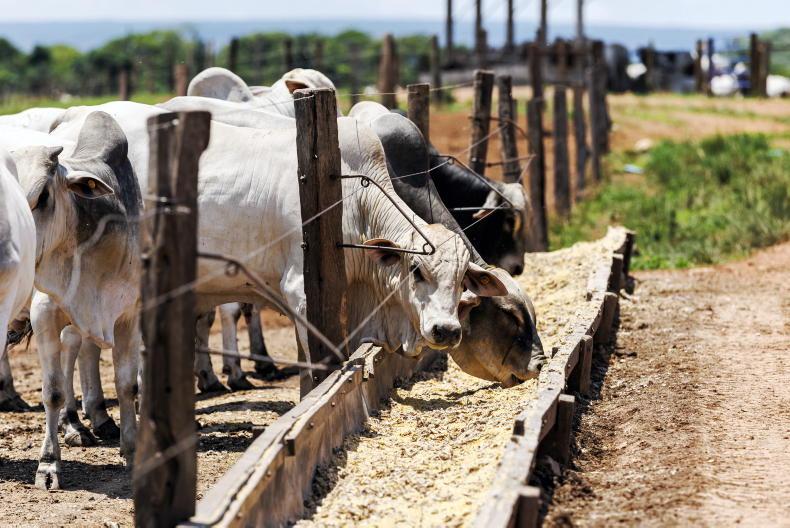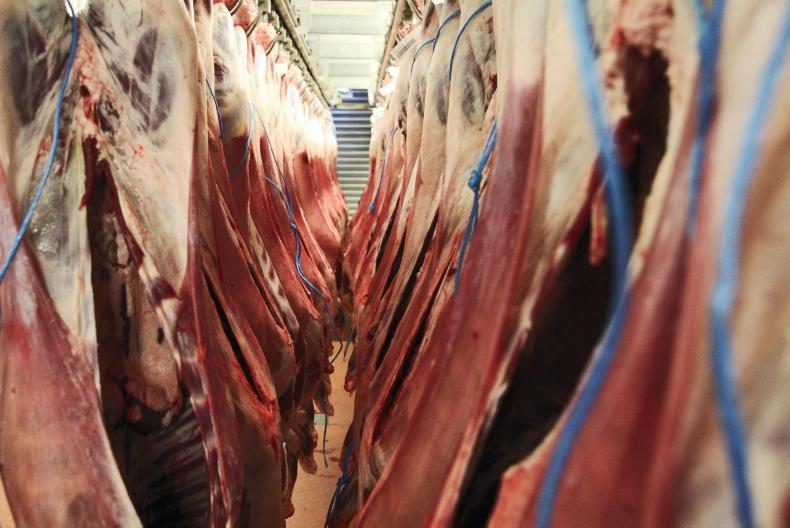Of 3,213 farmers surveyed in relation to unfair trading practice (UTP) legislation, which has been in place since April last year, exactly half have no idea what they mean.
These findings were revealed at a seminar hosted by Minister for Agriculture Charlie McConalogue at Backweston on Thursday.
Over half (56%) of respondents were beef producers, 17% were dairy farmers and 16% were sheep farmers.
When the survey drilled further into farmer understanding of UTP, 865 of respondents were not aware that there was legal protection against 16 specific UTPs and 76% didn’t understand that the purpose of UTPs were to protect farmers and other weaker members in the supply chain from more powerful buyers.
Little confidence
There is also little confidence among farmers on the protection offered by UTP regulations, with 59% of respondents having little or no confidence at all and only 3% very confident about the level of protection afforded.
One quarter of respondents believe that they have been victims of UTPs in the past two years.
The most common issue was unilateral changes to the purchase contract by the buyer, followed by misuse of trade secrets and payment delayed by more than the allowed 30 days.
When respondents were prompted on UTPs, half were of the view that they would make no difference, while 31% believed that they strengthened the sellers position at least somewhat.
For 19%, the belief was that UTPs would make the sellers' position worse
However, for 19%, the belief was that UTPs would make the sellers' position worse.
It also appears that weaker sellers don’t see much point in raising issues with stronger buyers. Only 15% believed it was worthwhilem while 68% believed that there was no point.
What are UTPs?
UTP legislation has its origins in the EU and is a product of Phil Hogan’s time as agriculture commissioner.
They were adopted into Irish law in April 2021, with a year allowed for adoption. That means that all contracts entered into after 28 April this year are subject to UTP legislation.
There are 16 specific UTPs, divided into 10 'black' - which are prohibited in all circumstances - and six 'grey' - which are banned unless the parties specifically agree in advance that they accept them.
1. Payment later than 30 days for perishable agricultural and food products.2. Payment later than 60 days for other agricultural and food products.3. Short-notice cancellations of perishable agricultural and food products.4. Unilateral contract changes by the buyer.5. Payment not related to a specific transaction.6. Risk of loss and deterioration transferred to the supplier.7. Refusal of written confirmation of a supply agreement by the buyer, despite request of the supplier.8. Misuse of trade secrets by the buyer.9. Commercial retaliation by the buyer.10. Transferring the costs of examining customer complaints to the supplier.Any of these occurrences would be an exceptional experience for farmers, as most businesses make payments in a timely manner.
Changing the price agreed for a purchase may happen, but, again, it is a rare occurrence.
1. The buyer returns unsold products to the supplier without paying for those unsold products.2. Payment by the supplier for stocking, display and listing.3. Payment by the supplier for promotion.4. Payment by the supplier for marketing.5. Payment by the supplier for advertising.6. Payment by the supplier for staff of the buyer, fitting out premises.These practices are rarely, if ever, applicable to farmers, they are more for smaller processors supplying retail, food service or even larger processors.
UTPs are limited in addressing the issues faced by farmers in the supply chain.
They give protection against issues that rarely, if ever, happen in practice.
The biggest issue for farmers is understanding where the money goes for their produce once it leaves the farm gate.
The legislation doesn’t address this issue.
Of 3,213 farmers surveyed in relation to unfair trading practice (UTP) legislation, which has been in place since April last year, exactly half have no idea what they mean.
These findings were revealed at a seminar hosted by Minister for Agriculture Charlie McConalogue at Backweston on Thursday.
Over half (56%) of respondents were beef producers, 17% were dairy farmers and 16% were sheep farmers.
When the survey drilled further into farmer understanding of UTP, 865 of respondents were not aware that there was legal protection against 16 specific UTPs and 76% didn’t understand that the purpose of UTPs were to protect farmers and other weaker members in the supply chain from more powerful buyers.
Little confidence
There is also little confidence among farmers on the protection offered by UTP regulations, with 59% of respondents having little or no confidence at all and only 3% very confident about the level of protection afforded.
One quarter of respondents believe that they have been victims of UTPs in the past two years.
The most common issue was unilateral changes to the purchase contract by the buyer, followed by misuse of trade secrets and payment delayed by more than the allowed 30 days.
When respondents were prompted on UTPs, half were of the view that they would make no difference, while 31% believed that they strengthened the sellers position at least somewhat.
For 19%, the belief was that UTPs would make the sellers' position worse
However, for 19%, the belief was that UTPs would make the sellers' position worse.
It also appears that weaker sellers don’t see much point in raising issues with stronger buyers. Only 15% believed it was worthwhilem while 68% believed that there was no point.
What are UTPs?
UTP legislation has its origins in the EU and is a product of Phil Hogan’s time as agriculture commissioner.
They were adopted into Irish law in April 2021, with a year allowed for adoption. That means that all contracts entered into after 28 April this year are subject to UTP legislation.
There are 16 specific UTPs, divided into 10 'black' - which are prohibited in all circumstances - and six 'grey' - which are banned unless the parties specifically agree in advance that they accept them.
1. Payment later than 30 days for perishable agricultural and food products.2. Payment later than 60 days for other agricultural and food products.3. Short-notice cancellations of perishable agricultural and food products.4. Unilateral contract changes by the buyer.5. Payment not related to a specific transaction.6. Risk of loss and deterioration transferred to the supplier.7. Refusal of written confirmation of a supply agreement by the buyer, despite request of the supplier.8. Misuse of trade secrets by the buyer.9. Commercial retaliation by the buyer.10. Transferring the costs of examining customer complaints to the supplier.Any of these occurrences would be an exceptional experience for farmers, as most businesses make payments in a timely manner.
Changing the price agreed for a purchase may happen, but, again, it is a rare occurrence.
1. The buyer returns unsold products to the supplier without paying for those unsold products.2. Payment by the supplier for stocking, display and listing.3. Payment by the supplier for promotion.4. Payment by the supplier for marketing.5. Payment by the supplier for advertising.6. Payment by the supplier for staff of the buyer, fitting out premises.These practices are rarely, if ever, applicable to farmers, they are more for smaller processors supplying retail, food service or even larger processors.
UTPs are limited in addressing the issues faced by farmers in the supply chain.
They give protection against issues that rarely, if ever, happen in practice.
The biggest issue for farmers is understanding where the money goes for their produce once it leaves the farm gate.
The legislation doesn’t address this issue.









SHARING OPTIONS